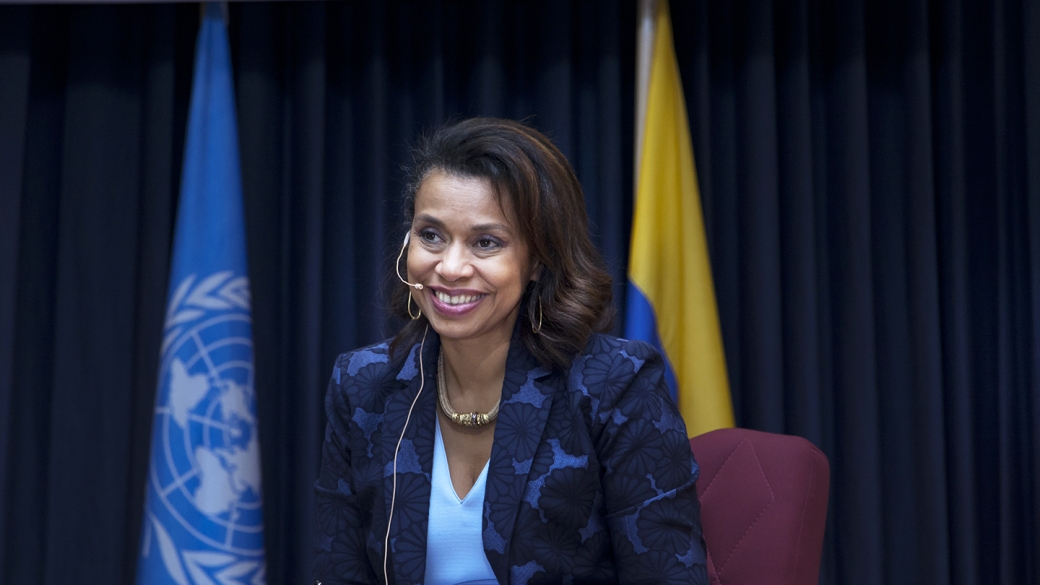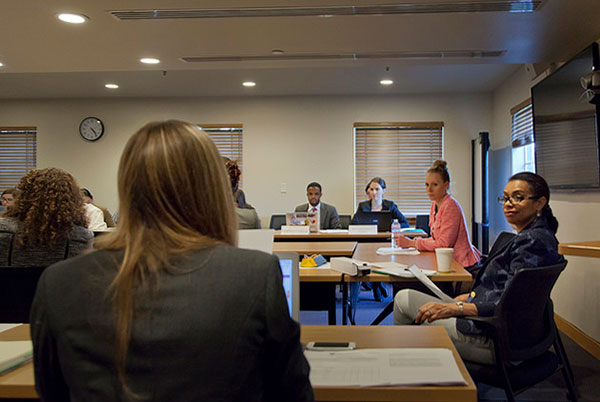Alumna Elayne Whyte Goméz Reflects on Experiences Negotiating Landmark Treaty

“We wanted to change the world,” Ambassador Elayne Whyte Goméz MAIPS ’93 said of herself and her classmates 24 years ago, addressing an audience of students, faculty, staff and community members in the Irvine Auditorium Monday evening. In ways large and small, that aspiration continues to fuel her work. Earlier this year, Ambassador Whyte—a career diplomat who has served in recent years as Permanent Representative of Costa Rica to the United Nations Office in Geneva —successfully led the negotiation of the landmark Treaty on the Prohibition of Nuclear Weapons.
While the Nuclear Weapons Ban Treaty (as it is often called) does not include either the existing nuclear weapons states or their closest allies, its negotiation and signature by representatives of 122 nations represents a significant step toward the goal of a world without nuclear weapons—the first formal, binding international agreement to prohibit nuclear weapons.
“There is nothing permanent in human history; everything is in constant transition,” said Whyte, pointing out that when she was growing up, she assumed the world would always be bipolar—and then the Cold War ended. “The nuclear age will not be permanent and will also pass… But when and how will it be achieved? Will it be peaceful, or will it happen with the destruction of humanity?” Whyte emphasized the need for further political dialogue and citizen engagement on the issues surrounding the treaty, but remained optimistic about the possibilities for progress ahead, saying “it is especially when we are navigating turbulent waters, that we have to walk with hope, and act with hope.”
“The nuclear age will not be permanent and will also pass… But when and how will it be achieved? Will it be peaceful, or will it happen with the destruction of humanity?”
Whyte, whose appearance came at the invitation of James Martin Center for Nonproliferation Studies Founding Director, Dr. William Potter, described her “great joy” at returning to the Institute 24 years after graduating, saying it felt like “coming home.” She was introduced by Dr. Potter as well as Professor Jan Black, who began teaching at the Institute the same year that Whyte enrolled. Black remembered her former student fondly and reminisced about Whyte’s friendship with classmate Werner Romero MAIPS ’93, a fellow diplomat who has recently served as (the first) El Salvador’s ambassador to the United Kingdom and currently as its ambassador to Israel. Black reminded the audience that, among her many accomplishments, Whyte was the first woman and the youngest person ever to serve as vice minister of foreign affairs for Costa Rica.

At a private dinner on Sunday evening, Potter presented Whyte with a California State Senate Certificate of Recognition on behalf of Senate Majority Leader Bill Monning, an Institute faculty member. Near the conclusion of her three-day visit, Whyte also took the time to speak to students in Potter’s Nonproliferation Treaty Preparatory Committee simulation class.
For More Information
Jason Warburg
jwarburg@middlebury.edu
831-647-3516
Eva Gudbergsdottir
evag@middlebury.edu
831-647-6606
